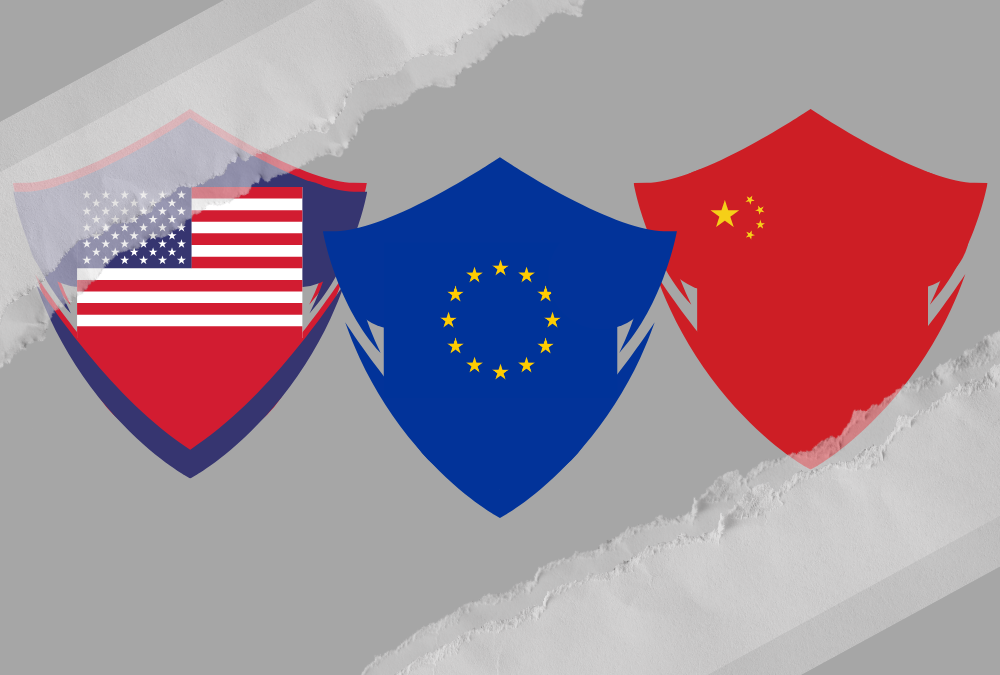Humanity’s tendency to make living more complicated than it needs to be is quite remarkable. Nowhere is it more apparent than it is in the way we divide the resources and collective know-how of our nation states.
Earlier this week, German chancellor Olaf Scholz, who is currently facing a domestic crisis as the German economy contracts and his government scrambles to contain the fallout, led a delegation of some of Germany’s biggest business moguls on a four-day trip to China.
Scholz has come under fire from the United States as well as several other key European member states such as France for kowtowing to China’s dictator-in-chief, president Xi Jinping. However, the massive scale of the Chinese market has its ways when it comes to seducing Western governments seeking to appease the shareholders of their countries’ biggest manufacturers, especially when considering their lucrative business interests in China.
There are plenty of reasons why nations purporting to be democracies would be enraged at the way in which one of their own – in this case, Scholz and his floundering government – blatantly seeks to do business with a totalitarian country that violently cracks down on dissent (in one instance even allegedly resorting to Triad gang members to do so), forcibly detains the Uyghur population while subjecting them to forced labour, and pioneered the infamous social credit system.
However, this was clearly not enough to dissuade Western companies from being tempted into advancing their interests in China’s market, in the same way it was not enough to dissuade these same companies from establishing themselves in Russia only to then find themselves clambering over each other to disengage after Russia went completely rogue and launched its full scale invasion of Ukraine two years ago.
So why are we talking about disengaging from China now? Well, because when money talks, the United States and the European Union listen. And this time, the money’s saying: “you’re all up in shit creek without a paddle”.

German Chancellor Olaf Scholz.
A big chunk of Scholz’s four day romp in China was taken up by Xi Jinping’s thinly-veiled irritation about European efforts to impede the flooding of European markets with cheaper, mass manufactured Chinese technology, the likes of which Europe cannot as of yet hope to emulate in terms of productive capacity. This includes anything from vehicles to batteries to green technology like wind turbines and solar panels.
The United States has also been accused of its own brand of protectionism, which is defined as the provision of a competitive advantage to local companies while imposing additional taxation on foreign companies. The Biden administration put up a staggering total of $369 billion in subsidies for in-house green technology manufacturers. The EU has also faced similar accusations.
Before proceeding any further with this analysis, consider first that when it comes to green technology in particular, there is absolutely no doubt about the urgency of the need for faster, cheaper, and more widespread implementation. The benefits from such implementation go far beyond mere profits – when it comes to the green transition, it is a question of survival for our entire species.
This flaw is so deeply embedded in our global resource distribution system that it presents itself even when one looks at the opposite end of the spectrum – from the green technology we need to save the planet, to the military technology we are using to destroy it.
A significant problem which the European defence industry keeps encountering as it feebly attempts (and fails) to deliver promised munitions and weapons for Ukraine is the fact that most member states produce slightly different configurations of similar weapons and ammunition, which make wartime levels of mass manufacturing impossible unless the process is streamlined.
And so, the fallacy presents itself: whether we’re talking about building solar panels or dropping bombs, collaboration is the superior mode of production, not competition. More collaboration means more production, more quickly, more cheaply. Less collaboration means individual entities get to dominate markets and effectively hog supply routes for profit.
When considered in this light, the double folly of attempting to stymie the flow of Chinese goods onto European markets while trying to keep up with the vast sums of dollars being tossed onto US producers’ laps on the other side of the Atlantic becomes quite concerning.
More to the point – if it is observably true to state that the inherent competitiveness of protectionism stifles human progress rather than help it flourish, what is it that is actually gained from protectionism? One might seek to justify it as a means to assert technological, economic, and military dominance, thereby maintaining the stability of the global order.
But what is this global order if not a delusion? If we were to blindly take the word of the three superpowers headlining this article’s featured photo, we’d get three different versions of it. The United States thinks it’s in charge. China thinks it’s in charge. Russia is so absolutely convinced it’s in charge that it condemned yet another generation of young men to death. The European Union, veering ever more towards the far right and the imagery which defines it, waxes nostalgic about the times when it was so divided we slaughtered each other every other week.
What once were the staples of international diplomacy – the United Nations, the World Trade Organisation, the Organisation for Economic Cooperation and Development (OECD) – are now fora for the grinding of nation states’ axes. Rather than using these fora as they were intended, belligerent nation states who wield influence in these supranational structures have worn down their democratic fabric through refusals to cooperate unless the national agenda is served.
What we need is people in power to come to their senses (whether through having a good, hard, long look in the mirror on their own initiative or at your behest as a citizen is entirely up to you) and for people who are not in power to strike hard, fast, and without hesitation whenever and however necessary.
If you are hankering for inspiration, I’d argue that the Climate Defiance model is the template to follow for any kind of grassroots campaign. It is a template that can be easily adapted to serve campaigns on other important issues. If it involves people in power being pressured to take necessary, immediate corrective action, then that is the way forward.
Experience has shown that all other types of approaches are destined to fail, because there is simply no other way to fight back against the sheer collective firepower of every major industry lobby in the world as they all vie for their slice of the pie without realising the whole thing is getting burnt to smithereens in the oven in the mean time.
Simply put, we do not afford the power games of politicians who are clearly far more focused on securing their next desk job than they are on actually resolving the great challenges of our time.
The next time an MEP hopeful disturbs your day with the intent of securing your vote, tell them to let you know what it is that they plan on doing about this global geopolitical meltdown if elected.
If the answer to your query is ‘more protectionism’, then you can rest assured that whoever it is you are talking to will just be giving you more of the same: short-sighted solutions that protect the profits of big businesses at the cost of your life, your future, and everything you hold dear.
Democracy requires labour, and this is the great upheaval of our times.


